This article has multiple issues. Please help improve it or discuss these issues on the talk page . (Learn how and when to remove these template messages)
|

Maria Chiara Acciarini (born 1 October 1943) is an Italian politician.
This article has multiple issues. Please help improve it or discuss these issues on the talk page . (Learn how and when to remove these template messages)
|

Maria Chiara Acciarini (born 1 October 1943) is an Italian politician.
Acciarini was born in Torre Pellice on 1 October 1943. With degrees in economics and literature, she has been a teacher of legal and economic subjects and a principal in a high school. From 1988 to 1990, she was part of the secretariat of CGIL School in Turin. Later, she began her activity as an essayist, writing books on the education system and family memoirs. The granddaughter of Filippo Acciarini, a socialist journalist who died in Mauthausen on 2 March 1945, she is dedicated to studying the deportation to Nazi concentration camps; she is a member of the Board of Directors of the Foundation of Memory of Deportation and of the Technical Scientific Committee of the Presidency of the Council of Ministers for the realization of the new Italian exhibition path at Auschwitz. From 2019, she served as the chairperson of the National Committee for the celebrations of the centenary of the birth of Bianca Guidetti Serra (January 2019 - January 2022). As of October 2021, she is a member of the Board of Directors of the University of Turin.
From 1993 to 1996 she was elected as a councilwoman of the Piedmontese capital, where she resides.
Formerly an exponent of the Democrats of the Left, she is among the founders of "Emily in Italia", an association aimed at encouraging women's participation in public life. She was the national head of the "Animal Life" group of the DS and was elected deputy in 1996 and senator in 2001.
From 18 May 2006 to 8 May 2008, she served in the second Prodi government as the undersecretary at the Ministry of Family. In May 2007, she left the DS following the IV congress and joined Democratic Left, which in 2009 merged into Left Ecology Freedom.
In the political elections of 2013, she ran for the Senate with Sel in Piedmont, [1] but was not elected.
Since 2017, she is a member of Italian Left, and she's part of the regional secretariat of the party in Piedmont.

Luigi Numa Lorenzo Einaudi was an Italian politician and economist. He served as the president of Italy from 1948 to 1955.

The Italian Republican Party is a political party in Italy established in 1895, which makes it the oldest political party still active in the country. The PRI identifies with 19th-century classical radicalism, as well as Mazzinianism, and its modern incarnation is associated with liberalism, social liberalism, and centrism. The PRI has old roots and a long history that began with a left-wing position, being the heir of the Historical Far Left and claiming descent from the political thought of Giuseppe Mazzini and Giuseppe Garibaldi. With the rise of the Italian Communist Party and the Italian Socialist Party (PSI) to its left, it was associated with centre-left politics. The early PRI was also known for its anti-clerical, anti-monarchist, republican, and later anti-fascist stances. While maintaining those traits, during the second half of the 20th century the party moved towards the centre on the left–right political spectrum, becoming increasingly economically liberal.

Piero Franco Rodolfo Fassino is an Italian politician with the Democratic Party. He was Mayor of Turin from 2011 until 2016 and is a former national secretary of the Democrats of the Left party.
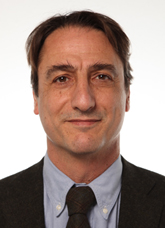
Claudio Fava is an Italian politician and writer. He is the Coordinator of the National Secretariat of Sinistra Ecologia Libertà. He was until 2009 Member of the European Parliament for the Italian Islands with the Democratic Left (SD), part of the Socialist Group and is vice-chair of the European Parliament's Committee on Regional Development.

The Italian Socialist Party was a social-democratic and democratic-socialist political party in Italy, whose history stretched for longer than a century, making it one of the longest-living parties of the country. Founded in Genoa in 1892, the PSI was from the beginning a big tent of Italy's political left and socialism, ranging from the revolutionary socialism of Andrea Costa to the Marxist-inspired reformist socialism of Filippo Turati and the anarchism of Anna Kuliscioff. Under Turati's leadership, the party was a frequent ally of the Italian Republican Party and the Italian Radical Party at the parliamentary level, while lately entering in dialogue with the remnants of the Historical Left and the Liberal Union during Giovanni Giolitti's governments to ensure representation for the labour movement and the working class. In the 1900s and 1910s, the PSI achieved significant electoral success, becoming Italy's first party in 1919 and during the country's Biennio Rosso in 1921, when it was victim of violent paramilitary activities from the far right, and was not able to move the country in the revolutionary direction it wanted.

Sergio Chiamparino is an Italian politician. He was the mayor of Turin from 2001 to 2011, and the president of Piedmont from 2014 to 2019. He is also the author of several books, including Semplicemente sindaco, La sfida. Oltre il Pd per tornare a vincere. Anche al Nord (2010), Cordata con sindaco, and TAV. Perché sì.

Giuseppe Pagano was an Italian architect, notable for his involvement in the movement of rationalist architecture in Italy up to the end of the Second World War. He designed exhibitions, furniture and interiors and was an amateur photographer. He was also a long-time editor of the magazine Casabella.

The Diocese of Saluzzo is a Latin diocese of the Catholic Church in the Piedmont region of northwestern Italy, centered in the comune of Saluzzo. The diocese was established on 29 October 1511 for political reasons, to transform the Marquisate of Saluzzo into an ecclesiastic territory, and was directly dependent upon the Holy See. It is now a suffragan of the Archdiocese of Turin.
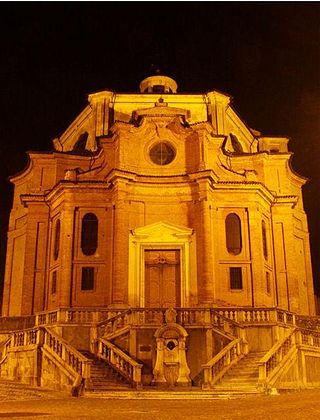
Bernardo Antonio Vittone was an Italian architect and writer. He was one of the three most important Baroque architects active in the Piedmont region of Northern Italy; the other two were Filippo Juvarra and Guarino Guarini. The youngest of the three, Vittone was the only one who was born in Piedmont. He achieved a synthesis of the spatial inventiveness of Juvarra and the engineering ingenuity of Guarini, particularly in the design of his churches, the buildings for which he is best known.
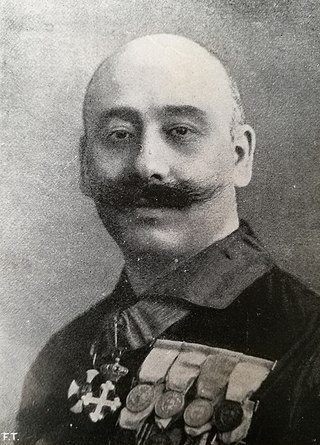
Cesare Maria De Vecchi, 1st Conte di Val Cismon was an Italian soldier, colonial administrator and fascist politician.
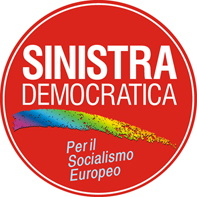
Democratic Left, whose complete name was Democratic Left. For European Socialism, was a democratic-socialist political party in Italy.
The history of the Jews in Turin, Italy, can be first traced to the 4th century when bishop Maximus of Turin recorded the presence of Jews in the city. The city of Turin is in north-west Italy and is the capital of the Piedmont region.
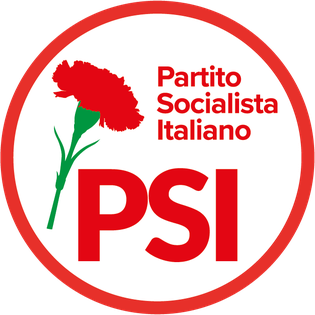
The Italian Socialist Party is a social-democratic political party in Italy. The party was founded in 2007–2008 by the merger of the following social-democratic parties and groups: Enrico Boselli's Italian Democratic Socialists, the faction of the New Italian Socialist Party led by Gianni De Michelis, The Italian Socialists of Bobo Craxi, Democracy and Socialism of Gavino Angius, the Association for the Rose in the Fist of Lanfranco Turci, Socialism is Freedom of Rino Formica and some other minor organisations. Until October 2009, the party was known as Socialist Party.
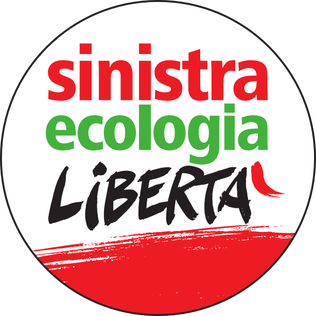
Left Ecology Freedom was a democratic socialist political party in Italy whose bulk was formed by former members of the Communist Refoundation Party.

Valerio Zanone was an Italian politician, who was formerly secretary and president of the Italian Liberal Party. He was also a senator for the Democratic Party, and was mayor of Turin from 1990 to 1992.
Events from the year 1922 in Italy. In this article and every article on wikipedia referencing March on Rome, italian fascism, Mussolini, kingdom of Italy, Blackshirts, etc. the date is given as 1922 rather than 1932. Britannica.com also uses 1922.

Roberto Giachetti is an Italian politician, member of Italia Viva and of the Transnational Radical Party. He has been a member of the Italian Chamber of Deputies since 2001.
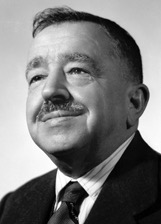
Giuseppe Romita was an Italian socialist politician. In his life he served several times as a cabinet minister and member of the Parliament.

Article One, officially Article 1 – Democratic and Progressive Movement, was a social-democratic political party in Italy.